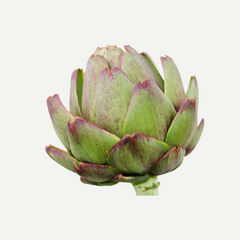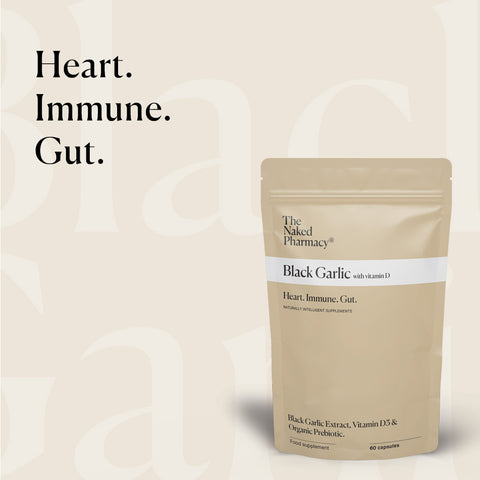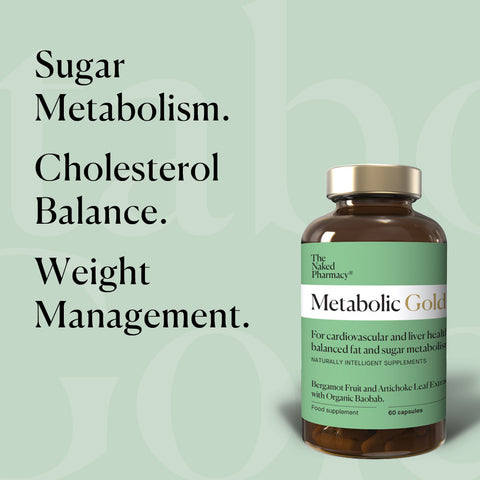Journal
12 Tips to Manage Christmas with Children with ADHD
Make Your ADHD Christmas Fizz Not Fizzle
We all want to avoid decking the halls with boughs of folly, let’s shine a special spotlight on the hidden struggles ADHD kids and their parents face during what can be the most frenzied time of year.

Is an ADHD Grinch-free Christmas possible?
ADHD in children means that anxiety and exhaustion can wrestle against enjoyment. While low dopamine might make the hunt for stimulation high, pushing that ‘annual magic’ too hard can mean it all unravels like a badly knitted Christmas stocking.
Alongside beautiful characteristics such as intelligence, imagination and empathy come other ADHD traits the NHS list as social anxiety, sight and noise sensitivities, emotional dysregulation and overwhelm that can really take the crackle out of Christmas.
Our ADHD-friendly 12-days of Christmas
While we can't promise your Yuletide will run without a hiccup, a few tweaks could make your ADHD Christmas much more of a cracker than a crash.
- Dreaming of a bite-sized Christmas
Protect their social battery – ADHD kids expend a lot of energy. They can also quickly become overwhelmed.
Consider trimming the festivities: stick to immediate family on the big day and spread out the extended crew on different days, giving kids a chance to recharge in between. Who said Christmas can't be done in bite-sizes?
- Good King Senses
ADHD in kids often means being up against sensory nightmares – think loud TVs, clinking glasses, gaudy Christmas lights, paper hats that feel like a crown of thorns, being hugged when you hate touch. These can all be major ADHD sensory triggers.
It’s a good idea to establish a code beforehand to use for a quick escape, set up a quiet space with soft lighting, and bring an iPad and noise-cancelling headphones with you. Sometimes, a strategic retreat is the best gift.
- Managing expectations
Before the festive break, ask your kids what they really want – even if it’s as outrageous as a wishing well (trust me, I’ve been there) or a sleep fairy (actually, I asked for this). If their dreams are bigger than Santa can handle, be upfront about it. No child wants to discover the mega-Lego set they’ve set their heart on is off the table on Christmas morning, especially when emotional dysregulation is such a significant part of ADHD.
Spare them the stress of unwrapping gifts in front of family. Here's what Lillia, 15, says: “You’re expected to have a positive reaction and that can be stressful especially as you’re already the centre of attention – that’s already socially draining. You must then react a certain way, regardless of how you feel, and force yourself to look happy even if you’re not. That’s a lot of pressure.”

- Ditch Christmas shopping
Being trapped inside busy, stuffy, noisy, crowded stores with long queues can be the seventh circle of hell for any child. Ramp that up ten-fold for an ADHD child.
Here’s some advice from Lillia: “If your child doesn’t show an interest in going shopping with you, don’t force them. Leave them with a relative, friend or parent as they’re likely to find it stressful.”
“If you can’t do this – or they want to go –take a friend with you. That way, if they find it too overstimulating, the friend can step out with them. If they’re old enough to be independent, they can go to a nearby café and wait there.”
The key thing is “to give them some options”.
- Don’t force the fun
Asking an ADHD child to ‘join in’ when they’re already struggling to keep it together is likely to provoke a frosty withdrawal or a meltdown. Whether it’s time at pantos or fun with relatives, consider breaking visits into manageable chunks.
Lillia advises, “Don’t get mad at a child for wanting to sit out. Don’t nag them to return if you think they need more social interaction. If they’re not up for it, don’t force them.” She reminds us that socialising “shouldn’t feel like a chore”.
- Do plan the fun
It’s worth looking out for any Christmas-themed activities happening near you, like ice skating or Christmas markets. You can even make a den at home and watch Christmas films inside. Having something for your ADHD child to look forward to every day keeps their dopamine boosted the right way. If possible, get outside. ADHD and exercise have been shown to help with a reduction in their ADHD symptoms.

- Better fuel this Yule
With chocolate everywhere, our ADHDer’s dopamine-seeking brains will be partying without thinking of the crash.
We know impulse control makes it hard for them to stop, so instead let them have a nibble and keep the rest somewhere safe especially for them.
Turkey, on the other hand, is loaded with tryptophan which boosts serotonin for better moods and less anxiety. For a science-backed mood enhancer, try saffron – nature’s way to feel better and tackle ADHD symptoms.

8. No scary mystery dishes
If they’re already on a knife edge, a Christmas feast with too much food could be overwhelming. It’s a good idea to always have one comforting go-to dish for your ADHD child.
It’s worth knowing that 90% of serotonin is created in the gut. A lot of ADHD children have stomach issues, from cramps to constipation. If this is your child, it might be worth looking at Gut Love.
- Keep a routine
Although that dopamine kick wants novelty, it doesn’t mean routine should be chucked out of the window.
Discuss plans and try not to spring surprises on them. That certainly doesn’t mean Christmas has to be dull. It just needs a bit of planning. ADHD loves stimulation, but also thanks you for putting some reassuring scaffolding in place.
- Emotional regulation check-in
Emotional dysregulation is a hallmark of ADHD, where kids experience emotions more intensely, longer and deeper than their neurotypical peers. It’s often the most hidden part of ADHD too.
Dr Caroline Buzanko points out that when a child’s emotional brain is on overdrive, logic takes a back seat while the ‘emotional brain will overpower the cognitive brain every time’.
Instead of using reason which taps into their already depleted executive function skills, Dr. Buzanko suggests harnessing emotional energy. “Emotions are stronger motivators than reason.” Use gratitude, pride, and compassion – and we’ll all see fewer meltdowns.
Stimulating the vagus nerve is also said to help: You can even do this by singing cheesy Christmas hits.
And let’s not forget Saffron. This is Mother Nature’s gift for managing moods, ADHD, hormones, sleep and more.
- Sleep fairy
With brains buzzing like pinball machines, ADHD kids struggle to fall asleep or get enough of it.
ADHD-related sleep problems come from issues with the regulation of brain activity that can mean anything from a delayed circadian rhythm and later melatonin production, to insomnia.
The usual sleep hygiene rules apply, including getting outside in the earlier part of the day to try and set sleep cycles, as well as keeping to the same wake-up time each morning can help.
Another natural great way to help your ADHD child unwind is magnesium. It regulates neurotransmitters related to mental tension – learn more about it here.
And of course, Saffron is great for mood balance as it helps banish stress. Saffrosun Calm and Saffrosun for Children can help sooth away anxiety and make for a more restful night.
- Nature and Nutrition for ADHD
Thankfully Mother Nature has some pretty special gifts which can help with many of the challenging symptoms of ADHD. Look out for:
Saffrosun Calm (and for Children)
Which helps alleviate nervousness, improves sleep and restores emotional balance. It also enhances dopamine, serotonin, and noradrenaline—ideal for ADHD.
Supports nerve and muscle function, improves sleep and reduces stress and helps to decreases brain fog.
Immune Hero for Children
Contains Zinc to regulate dopamine and aids iron absorption, that’s essential for brain development and cognitive function
Gut Love (+14)
Enhances digestive health and alleviates gut issues in ADHD kids by improving the absorption of nutrients.
Foods that can help ADHD symptoms
The nutrients in certain foods travel to the brain and contribute to dopamine production, for example lots of fruits and vegetables.
Protein, including lean meats like turkey is great, as are foods rich in omega-3 fatty acids like salmon. Research has shown that consuming the amino acid tyrosine found in milk and bananas and more can also increase dopamine availability.
Try to avoid sugar and artificial colourings.
If you have any questions please do not hesitate to contact our pharmacists on pharmacist@thenakedpharmacy.com or call us 01483 678 438.
Natural ways to reduce a hangover and headaches
We are all guilty of over indulging at certain times of year, over eating, drinking too much or consuming too much sugar.
However, as you get older you may find that it is taking longer to bounce back and you may become intolerant to certain types of foods and alcohol.
If you suffer from headaches and migraines you may be reaching for painkillers such as Ibuprofen which, although an effective anti-inflammatory, has long term side effects including increasing cardiovascular risks and damaging the protective lining of the gut. Ibuprofen is only effective for up to 6 hours, so you may need to take repeated doses!
Did you know that Turmeric with the correct range and strength of 7 curcuminoids, has multiple anti-inflammatory benefits, works just as well as Ibuprofen or aspirin and actually improves gut health.
Scientific research (ref see below) has demonstrated that curcuminoinds, the active compounds in turmeric, are effective at removing both the cause and symptoms of a hangover.
Curcuminoids are potent antioxidants. Alcohol consumption can cause oxidative stress that damages your cells, so an effective antioxidant is vital before, during and after a heavy night.
So the perfect natural solution for hangovers should be taken before you go out and again when you wake up:
Natruflex Turmeric: We recommend that you take Natruflex Turmeric 1-2 capsules BEFORE you go out and when required during the next day.
Gut Love: Containing, 21 probiotics and 2 organic prebiotics. take 1 capsule daily to settle the digestion and improve the excretion of toxins for a minimum of 14 days.
Marine Magnesium: Take 1 capsule at night to restore healthy nerve and muscle function for a minimum of 7 days.
Vitamin D3: Take 2 capsule daily for at least 30 days
How can Metabolic Gold help?
Metabolic Gold contains Bergamot fruit extract and Artichoke leaf extract. It is the perfect blend of naturally sourced, high strength ingredients that work together synergistically to help reduce sugar levels, improve insulin resistance, balance cholesterol, reduce fat around the waistline and reduce fatty liver.
In a recent trial of 60 patients who were overweight and had high cholesterol, subjects were treated with a combination of bergamot extract and artichoke leaf extract for 2 months and compared to a group that received a placebo for the same amount of time. The results showed a significant decrease in total and LDL cholesterol as well as a significant reduction in waist circumference.
When combined with lifestyle efforts focusing on diet, exercise, sleep and stress, the combination of bergamot fruit and artichoke leaf extracts can provide significant health benefits.
We recommend this supplement is taken for at least 3-4 months at a dose of one capsule twice a day with or after food.
PUBLISHED RESEARCH:
https://pubmed.ncbi.nlm.nih.gov/35070194/
https://pubmed.ncbi.nlm.nih.gov/35668500/
https://pubmed.ncbi.nlm.nih.gov/30395947/
https://pubmed.ncbi.nlm.nih.gov/36370961/
How to tame a mid-life belly
An increase in fat around the waistline during our 40's is common even if there has been no change in your diet or lifestyle and can lead you to feeling frustrated that your previously successful weight-loss tactics are no longer effective.
However the good news is that our bodies undergo changes in hormone levels, muscle mass, etc. that require us to rethink our relationship with our diet, lifestyle, exercise and levels of stress.
Why does this happen in women?
Oestrogen and Insulin
Why does this happen in men?
The impact of poor sleep
Research also shows that lack of sleep, will increase appetite and hunger hormones alter, making us more hungry and prone to cravings.
Loss of muscle mass
Here are our tips to help you tame unwanted weight gain:
- Blood-sugar control is key (check out our book recommendations below to help you). Aim to reduce the amount of carbs you consume, especially rice, pasta, bread, cakes, alcohol and sugary foods. These peak sugar and encourage a sugar roller coaster.
- Include protein with every meal and essential fatty acids (omega 3s).
- Fasting overnight (12-14 hours) be aware of underlying health conditions that may mean fasting is not a safe option for you.
- Regular and consistent exercise, especially resistance training to build muscle mass, resistance bands for example are portable and easy to use. Regular exercise snacks are better than weekly exercise bingeing!
- Be aware of your stress levels as this will effect how your body metabolises food and nutrients, daily de-stressing activities could be a 10 minute walk outside, 5 minutes of breathing, journalling, regular 2 minute cold showers.
Can Supplements help?
Saffrosun Calm has been proven to promote restful sleep, balance the stress response and enhance energy levels.
Saffrosun Energy - includes all the benefits of Saffron if your thyroid is sluggish, or are suffering from brain fog with added iodine, vitamin D3 and will provide you with balanced energy.

Metabolic Gold – can help in your weight loss journey by binding to bad fats in the gut and prevent them being used in the body. Studies show that it can substantially reduce belly fat when taken for 3 months.
Books you may wish to read to support your weight loss journey:
MenuPause by Dr Anna Cabeca – gives 5 unique menu plans to break through menopause weight loss resistance
Glucose Revolution by Jessie Inchauspe – a great reference book on blood sugar control (check out @glucosegoddess on Instagram)
Metabolic Gold for liver health
"It's estimated that up to 1 in every 3 people in the UK has early stages of Non Alcoholic Fatty Liver Disease"
SOURCE: NHSINFORM
When our fat cells can’t cope anymore with storing fat – the liver takes the burden and becomes the “overflow” storage organ for fat. This sets the stage for a vicious cycle and metabolic dysfunction.
As the fats in blood increase, gene function in the liver is inhibited causing more fat to be dumped there. At the same time, levels of leptin are increased – causing a corresponding fall in the fat-burning hormone known as adiponectin. Low adiponectin levels lead to insulin resistance in the liver – which then causes blood sugar to rise – and this sugar is then converted to more fat.
Early symptoms of NAFLD (Non Fatty Liver Disease) may be mild:
- Extreme Fatigue
- Discomfort in upper right abdomen
- Difficulty losing weight
- Weakness
Losing weight can help to slowly unclog the liver, reduce the amount of stored fat, thereby speeding up the metabolism as well as to help to reduce blood sugar, harmful LDL cholesterol and triglycerides.

Dietary suggestions to unclog the liver and support its optimal function:
- A Mediterranean diet (vegetables, fruits, antioxidant spices and herbs, whole grains, oily fish, nuts and olive oil) have been shown to benefit liver health.
Liver nourishing foods include : cruciferous veg (Brussels sprouts, cauliflower, kale, cabbage, broccoli, rocket (arugula), watercress)
Bitter foods: rocket, radicchio, dandelion greens
- Practising some intermittent fasting can also help un-clog the liver, even if you can only manage a 12 hour overnight fast, as it allows the body to rest and regenerate.
- Ensure you are eating enough protein. If you are not consuming enough protein this can impair your liver’s ability to carry out it’s detoxifying and metabolic functions.
- Drink plenty of pure water to help flush out excess toxins.



The great news is that we can support our hard working liver with specific nutrients which have been supported by scientific research:


- AGED GARLIC can help shift unwanted fat from being dumped in the liver.
- VITAMIN D deficiencies are linked to NAFLD (Non Alcohol Fatty Liver Disease) : Vitamin D deficiency leads to the release of pro-inflammatory agents that can contribute to fatty liver disease
- BERGAMOT & ARTICHOKE EXTRACTS - Bergamot fruit extract has been shown to lower blood sugar, reduce inflammation, improve blood vessel activity and artichoke boosts your production of bile.

Metabolic Gold for insulin resistance
Insulin resistance causes fat storage
Insulin is known as “the fat storer” hormone and is strongly influenced by carbohydrate intake and overconsumption of food, causing a detrimental increase in your blood sugar.
When insulin resistance occurs, sugar can’t get into your cells the way it normally would and the result is that this sugar gets stored as fat.
How can you reduce insulin resistance?
- Diet (Mediterranean diet, intermittent fasting)
- Increased physical activity such as HIT
- Supplement regularly with Metabolic Gold
How can Metabolic Gold help with insulin resistance?

Metabolic Gold is a unique, safe and effective natural supplement that contains the highest strength bergamot fruit extract and artichoke leaf extract to improve sugar metabolism, balance blood sugar and reduce insulin resistance.
Why do I need a broad-spectrum probiotic?
When gut health is good, you’ll feel balanced – when it’s off, you may experience a variety of symptoms and this imbalance can also affect your emotional health, your immune system and skin health.
Signs you could benefit from taking a probiotic?
- You’ve taken a course of antibiotics
- You eat a lot of refined sugar
- You’ve taken a course of antacid medfication
- You experience bloating
- You have a lot of gas
- You suffer from loose stools/diarrhoea
- You regularly get constipated
- You have skin issues triggered by certain foods

50% of our stools are actually bacteria that have been living in your gut – therefore these bacteria need replacing everyday.
So how can we replace these wonderful hard working bugs?
- Plant-based fibre - helps our gut bugs thrive aim for ideally around 30g per day, ensuring vegetables and fruits of all the colours of the rainbow are included in a week.
- Fermented foods can boost the number of friendly bacteria in your gut, Kefir, sauerkraut, kimchi, miso, kombucha, pickles (in salty brine), tempeh, natto, unsweetened yoghurt
- Prebiotics : these are like fertiliser for our new and current gut flora and include:
- Baobab fruit
- Moringa leaf
- Chicory root
- Dandelion greens
- Jerusalem artichoke
- Garlic, Onions, Leeks
- Asparagus
- Bananas
- Barley, Oats
- Apples (with the skins)
- Dark chocolate
- Flaxseeds (also known as linseeds)
- Potatoes/pasta that have been cooked the day before and left in the fridge overnight
Why taking a probiotic could help?
Our GUT LOVE is a great multi-strain probiotic that can be taken daily, containing 19 different strains of live bacteria to help replenish your gut flora with a variety of strains.

Body shape is not an indicator of the strength of your blood vessels
Did you know that the blood vessels in your body are nearly 60,000 miles long which is twice around the world.
Their job is to carry vital blood, oxygen and essential nutrients to every part of the body. Healthy vessels are strong, elastic, flexible and clear of any deposits.

What causes a stroke?

So what can we do to keep our blood vessels unclogged, strong and healthy?
- Follow - The principles of a Mediterranean-style diet rich in a variety of fresh fruit and vegetables, ideally 6 portions a day and include a daily portion of a vegetable rich in nitric oxide, such as beetroot, broccoli, spinach, collard greens and kale. Nitric oxide is a substance that is essential for optimal arterial health and function. Eat regularly.
- Move - Aim for 30 minutes 5 times a week. However, research is growing that 'snack size' consistent exercise is just as impactful on our bodies and our mind. Dr Chatterjee is a huge advocate for adding an exercise snack with your daily routine so add squats as the kettle is boiling, or toe raises whilst brushing your teeth 5 minutes a day is better than nothing and consistency is key.
- Stop - Smoking.
- Maintain - low LDL cholesterol by reducing your consumption of processed and deep-fried foods.
- Lose - weight carrying extra weight increases your chances of having too much LDL cholesterol in your blood, leading to fatty deposits building up in the arteries, restricting blood flow. Studies show that even losing 5% of your body weight can improve cholesterol levels.
Our Metabolic Gold, is made from Bergamot (Citrus Bergamia) only grown in Calabria in Italy and can be used to support the health of your arteries by reducing cholesterol and supporting weight management.
Studies show that bioactive compounds in Bergamot can reduce the “bad” fats, lowering LDL cholesterol, triglycerides and improving total cholesterol levels.
In fact, Research on Bergamot has been shown to have 2 specific molecules that are very similar in structure, and function to statins.
Metabolic Gold can generally be used in conjunction with prescribed cholesterol-lowering medication – speak to one of our pharmacists for more information about your health and any potential indications with current medication


























